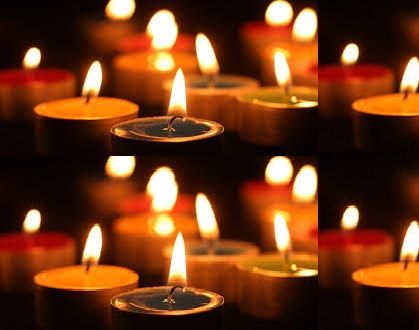Today, All Souls Day, while not a Holy Day of obligation in the Catholic Church, is a day of solemn and special devotion and prayer. It differs from All Saints Day, which is a Holy Day of obligation and is celebrated the day before All Souls Day commemorating all the saints in heaven. In most churches and traditions, All Souls Day is observed with more prayer and solemnity rather than joy and praise.
In the Catholic Church, it is a day set aside to remember all those who have died and who may not as yet been received into heaven, atoning for any wrongs they have done in their lifetime in Purgatory. They are not able to pray for themselves at this point, making it more important for their loved ones on earth to remember them and pray for them to attain full forgiveness of wrongs and gain entrance to heaven.
Lithuanians have a special prayer for All Souls Day:
“Dear souls of the dead,
you are still remembered by my family;
you are most worthy of our perpetual remembrance,
especially you, my grandparents, my parents,
also our relatives, children,
and everyone whom death
took away from our home.
I invite you to this annual feast.
We pray that this feast be agreeable to you,
just like the memory of you is to us. Amen.”
The day is filled with many traditions in a variety of cultures, regardless of religion. Unlike in the United States, in Mexico, All Souls Day is a day of great celebration, as Mexicans believe the souls of the dead come back to celebrate with their loved ones. Called La Dias de Muertas in Mexico, it is often celebrated with great festivals, parades, sumptuous meals and music, a happy time to rejoin those deceased whom they love. Many Mexicans spend hours in cemeteries where their loved ones are buried, bringing food and music to celebrate a day with them.
In Ireland, the Irish traditionally believe the souls of the dead would return to their family as well, and would speak to their descendants. In speaking with their descendants, the ancient belief was that the deceased would bestow two gifts upon their beloved…the ability to remember old days and traditions and a deeper understanding of how the family is always linked by bloodline. As a tradition, the Irish also believe since the souls return for a time, the living must go out of their way to make them feel welcome. The customs, however, take a back seat to the Irish attending mass and praying for their beloved deceased on Nov 2.
A Hungarian tradition is that all work, including housework, is forbidden on All Souls Day since work instead of praying and thinking of their deceased friends and relatives was considered disrespectful to the dead. All work on that day, tradition said, would be sabotaged.
Traditions focusing on All Souls Day are prolific and varied. In the Philippines, the belief is that raining on All Souls Day is actually the tears of the dead.
Other cultures light candles with the belief it will warm the dead and help their souls return to their graves by the end of the day.



